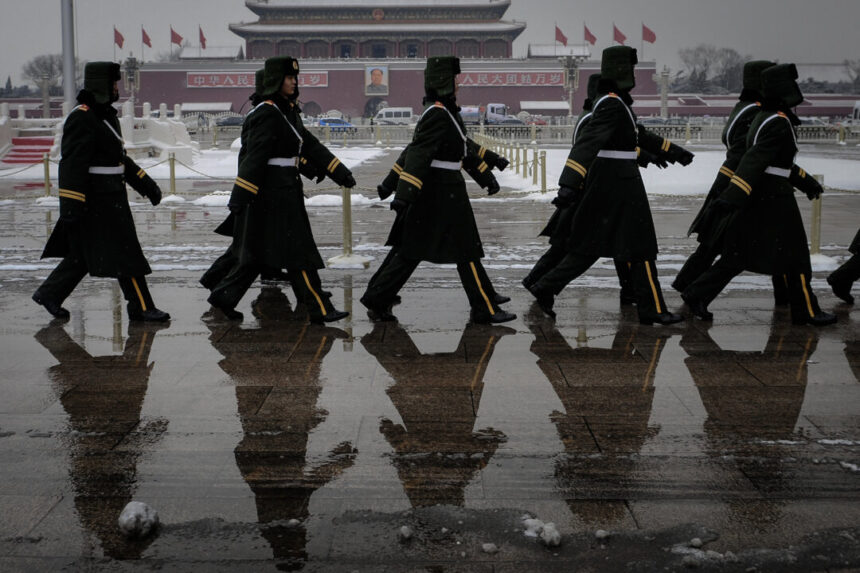Commentary
When you think of a local police station—not the headquarters building but a smaller neighbourhood branch—what comes to mind? Likely a few things: a sense of security that the police are nearby if trouble brews, a place to touch base with law enforcement officers, perhaps a way for police to engage in outreach with residents. Overall, a positive vibe.
What, then, comes to mind when you learn that the People’s Republic of China (PRC) has set up a “police station” around the corner from your house? Likely anything but the scenarios just listed.
China denies—of course!—that such places exist. But they do, in several cities across 50 nations worldwide, including at least five in Canada and four in the United States. It is unclear whether all these stations remain operational. The Canadian government finally began “investigating” them two years ago (who knows how long they had been in operation up until then). The RCMP announced in June 2023 that it had “shut down” these facilities.
And what has been China’s official line about these stations, which it initially claimed did not exist? These were merely service centres to help Chinese citizens renew their driver’s licences! Simply above-board services to aid fellow communists in need.
The truth, however, is far more insidious. These “stations” monitored members of the Chinese diaspora, especially those on the country’s “naughty list”—Tibetans, Uyghurs, Falun Gong practitioners, Hong Kongers, and others seen as dissidents, including those who dare to mock President Xi Jinping. Even something as trivial as likening Xi to Winnie the Pooh—a comparison that led to a ban on the cartoon bear’s image on Chinese platforms—can land someone on this list.
These so-called police stations were, in reality, covert operations engaged in “transnational repression”—a practice aimed at silencing anyone who fails to conform to the PRC’s dictates. Tactics include threats to critics’ families back home if their activities abroad do not cease.
Why distrust what the Chinese regime says? Simply put, the PRC is what we in intelligence circles call a “confirmed source of non-reliability.” This means taking anything the regime claims, flipping it on its head, and arriving closer to the truth. China has repeatedly proven untrustworthy, from its claims of being a “near-Arctic” nation (threatening Canadian sovereignty in the North) to its assertion of owning the entirety of the South China Sea (harassing legitimate maritime movement via its self-imposed “nine-dash line”). The regime’s denial of the Uyghur concentration camps in Xinjiang as mere “re-education centres” is another example. Fool me once, shame on you; fool me twice, shame on me.
There is, however, a glimmer of hope. In late December, a Manhattan man pleaded guilty to running a secret Chinese police station in New York used to intimidate and silence critics of the Beijing regime. Chen Jinping admitted to acting as an agent for a foreign government, a crime that could result in a five-year prison sentence. Not a severe punishment, but a start.
As for Canada, its response to Chinese interference remains feeble. The federal government shows little indication of treating this aggression against democracy seriously, as evidenced by its foot-dragging on the Foreign Interference Commission. Even if it did pass a law establishing a foreign agent registry, has anyone seen concrete action? Meanwhile, Beijing continues its campaign of intimidation unabated.
With the Trudeau Liberals facing potential electoral defeat, it remains to be seen how a new government, possibly under Pierre Poilievre, will address this threat. It cannot do less than the current administration, but whether it will do more is uncertain.
The Christmas season is a time for joy, hope, and optimism. Let us dream that Canada will finally “smell the soy sauce” and push back against the actions of Beijing, a communist regime that is undeniably not a friend.
Views expressed in this article are opinions of the author and do not necessarily reflect the views of The Epoch Times.
Please rewrite this sentence.
Source link







